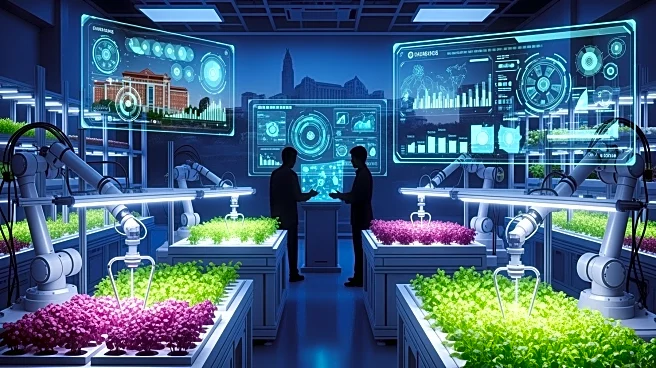What's Happening?
China Agricultural University (CAU) marked its 120th anniversary with a congratulatory message from President Xi Jinping. In his letter, Xi emphasized the importance of cultivating professionals passionate
about agriculture and urged the university to contribute to China's agricultural strength and modernization. He called for deepening educational reforms and enhancing agricultural scientific and technological innovation. The faculty and students of CAU had previously expressed their commitment to developing the university into a world-class institution and contributing to China's national rejuvenation.
Why It's Important?
The emphasis on agricultural innovation and modernization by President Xi Jinping highlights the strategic importance of agriculture in China's economic and social development. As China faces challenges such as a property crisis and high youth unemployment, strengthening the agricultural sector could provide stability and growth opportunities. The focus on scientific and technological advancements in agriculture aligns with China's broader goals of sustainable development and self-sufficiency, potentially impacting global agricultural markets and trade dynamics.
What's Next?
China Agricultural University is expected to implement educational reforms and boost its research capabilities in line with President Xi's directives. This may involve increased investment in agricultural technology and collaboration with international institutions. The university's efforts to become a world-class institution could lead to new partnerships and innovations in the agricultural sector, influencing China's domestic policies and international agricultural strategies.
Beyond the Headlines
The call for agricultural modernization reflects broader themes of national rejuvenation and self-reliance in China's policy agenda. It underscores the role of education and research in achieving these goals, potentially leading to shifts in educational priorities and funding. The focus on agriculture also highlights the cultural and historical significance of the sector in China's development narrative.









